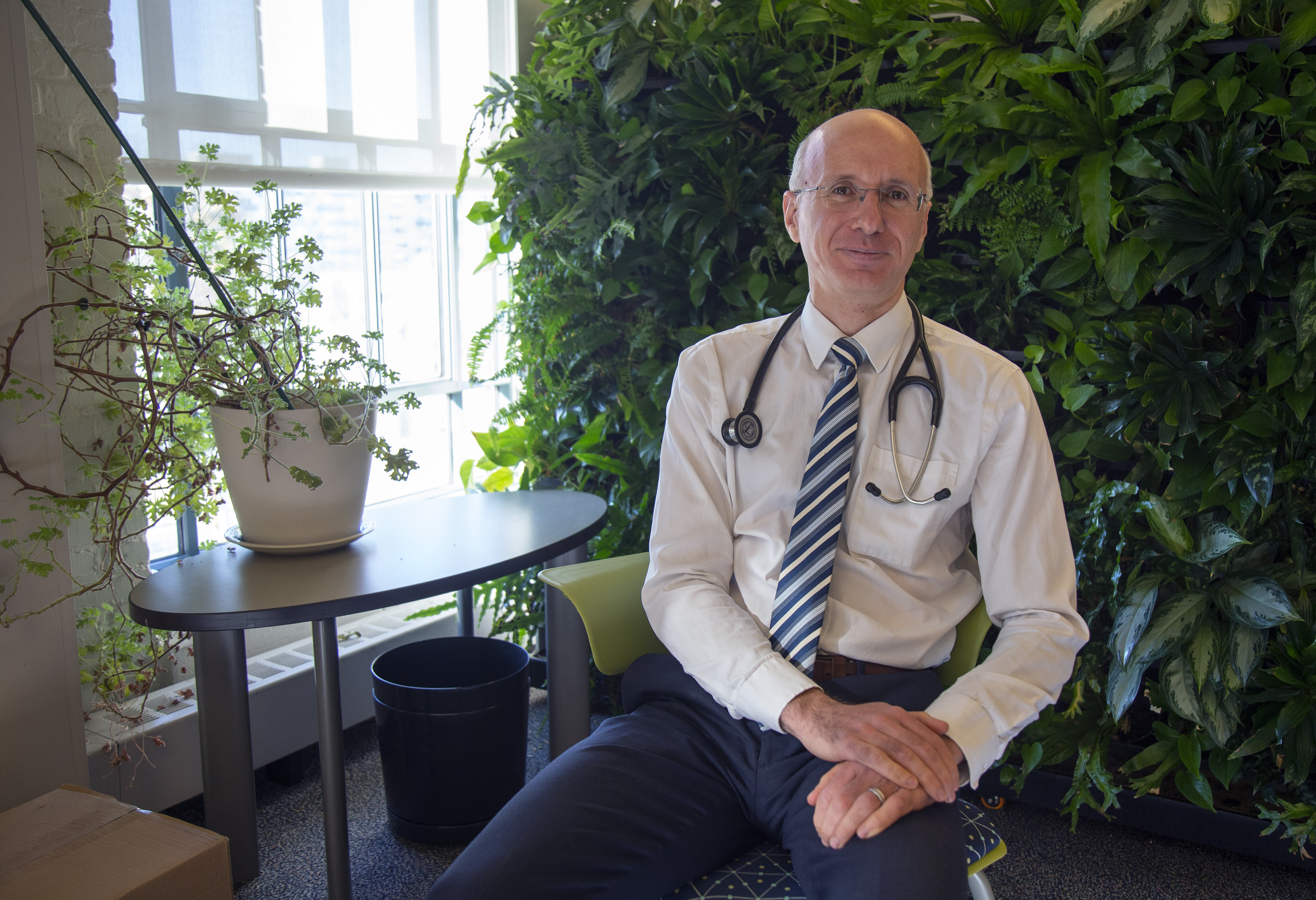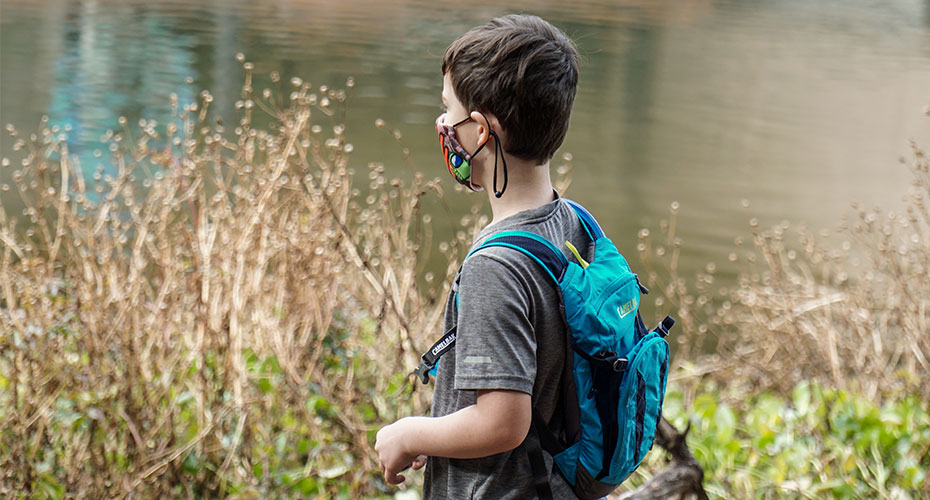Feb 26, 2021
What the pandemic has taught the planet
In a Coverage series, a physician explores the ways health and health care are affected by climate change, and highlights climate actions families can take to ensure that we provide our children and our loved ones with a healthier, more just, and sustainable world.
One day last winter, I put on a mask, gloves, gown and face shield to examine a young patient we thought might have a new and still largely mysterious disease.
When I put my stethoscope on her chest and listened to her heart, a lesson I learned long ago came to my mind: the welfare of our own species depends on those we share this planet with. By examining her I was connecting myself to an animal, probably a bat, somewhere halfway around the world. That moment reaffirmed to me the bonds that tie us together with all the other lifeforms we share the planet with.
Nature matters to our health in so many ways. It has provided many of the medicines I rely on to treat disease, especially antibiotics used to treat infections. The water I drink in Boston is purified largely by forests and the air I breathe gets cleaner thanks to trees and plants.
My hope, as we move into year 2 of this pandemic, is that we learn from COVID more than just how to develop better vaccines and diagnostic tests. I hope we learn that we need to re-evaluate our relationship with our planet, especially now when the benefits of protecting nature – and the unequal perils of the climate crisis — are becoming clearer.

Small steps, big benefits
Let’s take obesity, for example. Obesity was an unusual problem when I entered medical school, but today 40% of Americans are obese. Obesity increases risks for diabetes, heart disease, and cancer, and makes dying from COVID much more likely. It’s also more prevalent in individuals from low-income households who lack access to healthy foods and opportunities to exercise.
This trend has been fueled in part by unhealthy foods being cheap for consumers and healthy foods like fruits and vegetables more expensive. We can help change this, for instance by getting involved with organizations that advocate for subsidies for locally grown foods that are better for our planet as well as our bodies.
We can also support our health and the environment by advocating for better access to public and active transportation, particularly in low-income neighborhoods. Public transportation offers a double benefit: walking to a bus station or subway can provide daily exercise, unlike sitting in a car. And the more we increase subway and bus travel, the more we decrease air pollution associated with early deaths, heart attacks, strokes, lung cancer, and, as we have found this year, higher risk for more severe COVID disease. Communities with a majority of Black Americans and Hispanics in the U.S. often breathe worse air in no small part because they are more likely to live downwind of road traffic, due to a long history of discriminatory policies like redlining.
While the damaging health effects of climate change accrue over decades, the changes we make on a personal level can have immediate benefits.
The moment we start walking more and sitting in cars less, the better we feel.
Addressing the mental health crisis
One of the most stunning effects of the pandemic has been the mental health toll it has exacted and how it speaks to the need for fundamental change in how we provide mental health care in this country.
We have seen record-breaking numbers of children in mental health crises this year. Greater anxiety, depression, and suicidality have been evident among adolescents and young adults, particularly among Black Americans and Hispanics.
Children from low-income families are most likely to have real social vulnerabilities, more likely to have mental health problems, and least likely to have access to services. If we don’t effectively treat the mental health problems they face, when they grow up to be adults, they often will need more medical care. Failure to provide adequate mental health care is a sure-fire way to make sure that health care costs continue to climb.
This is yet another example of a festering problem made far worse by both the pandemic and the climate crisis. Wildfires, floods and droughts, and other extreme weather have brought trauma, especially in children. Caregivers and health leaders must do more to improve access to mental health care, bolster support for mental health clinicians, and embrace technologies like telehealth.
Hard lessons
The pandemic has been a massive stress test on our society. It has shown us how interwoven our lives are with other species. It has taught us how quickly our health care system can be brought to its knees. It has revealed the tragic consequences of racism in its disparate death toll for Black and Hispanic Americans. And we have seen how our children have borne tremendous burdens as the disease ravaged their communities.
We must learn from these lessons by addressing the twin threats of pandemics and climate crisis. Protecting nature, reducing deforestation, and transforming our health and transportation systems will simultaneously help protect our health, and our children’s health, by making nutritious foods more accessible, cleaning the air, and making it easier for people to be active.
We can seize this opportunity to reimagine the way we provide care.
We can chart a new, healthier, more just and sustainable path forward.
Did you find this article informative?
All Coverage content can be reprinted for free.
Read more here.

Dr. Aaron Bernstein was interviewed by Erika Small for this column.
Dr. Aaron Bernstein is co-director of the Center for Climate, Health, and the Global Environment at the Harvard T.H. Chan School of Public Health (Harvard Chan C-CHANGE) and a pediatrician at Boston Children’s Hospital.
PHOTO OF Dr. AARON BERNSTEIN BY JOHN WILCOX

